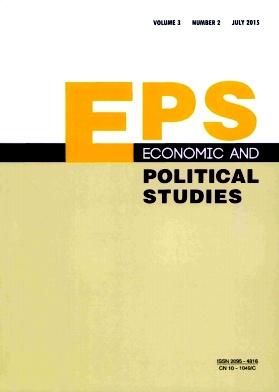Missing the China factor: evidence from Brazil and Mexico
IF 2
4区 社会学
Q2 SOCIAL SCIENCES, INTERDISCIPLINARY
引用次数: 3
Abstract
Abstract China’s rapid economic growth created new challenges and opportunities for Latin America over the 2000s. Much ink has been spilt analysing how countries in the region surfed the Chinese wave of commodity-based prosperity. However, there is fertile and quite unexplored territory to analyse how these regional powers in the Global South, from a comparative perspective, have interacted with China as they tried to improve their international position over the 2000s. We analyse in this article how Brazil and Mexico dealt with China’s presence and strategic goals in Latin America and assess the outcomes they extracted from this relationship. We draw evidence from and offer comparisons across different presidencies in each country (Lula and Rousseff in Brazil, and Fox, Calderón, and Peña Nieto in Mexico) over the 2000s, which allows us to grasp the variation in ideology, governance style, and electoral legitimacy. We ground our theoretical framework in the concept of international insertion, a Southern-based framework that opens space to understand and explain how countries in the South behave in international politics from a different point of view. We claim that the efforts made by the national governments in both countries to improve their positions achieved limited or transitory results, if considering China as a strategic factor.忽略了中国因素:来自巴西和墨西哥的证据
2000年代以来,中国经济的快速增长为拉丁美洲带来了新的挑战和机遇。人们花了很多笔墨来分析亚洲各国是如何在中国掀起的大宗商品繁荣浪潮中乘风破浪的。然而,从比较的角度来看,全球南方的这些地区大国在本世纪头十年试图改善其国际地位的过程中,是如何与中国互动的,这是一个丰富而尚未开发的领域。本文分析了巴西和墨西哥如何应对中国在拉丁美洲的存在和战略目标,并评估了他们从这种关系中提取的结果。我们从2000年代以来每个国家的不同总统(巴西的卢拉和罗塞夫,墨西哥的福克斯、Calderón和Peña涅托)中提取证据并进行比较,这使我们能够掌握意识形态、治理风格和选举合法性的变化。我们的理论框架以国际插入的概念为基础,这是一个以南方为基础的框架,为从不同的角度理解和解释南方国家在国际政治中的行为开辟了空间。我们认为,如果把中国作为一个战略因素来考虑的话,两国政府为改善自身地位所做的努力取得了有限的或暂时的成果。
本文章由计算机程序翻译,如有差异,请以英文原文为准。
求助全文
约1分钟内获得全文
求助全文
来源期刊

Economic and Political Studies-EPS
SOCIAL SCIENCES, INTERDISCIPLINARY-
CiteScore
5.60
自引率
4.20%
发文量
29
 求助内容:
求助内容: 应助结果提醒方式:
应助结果提醒方式:


